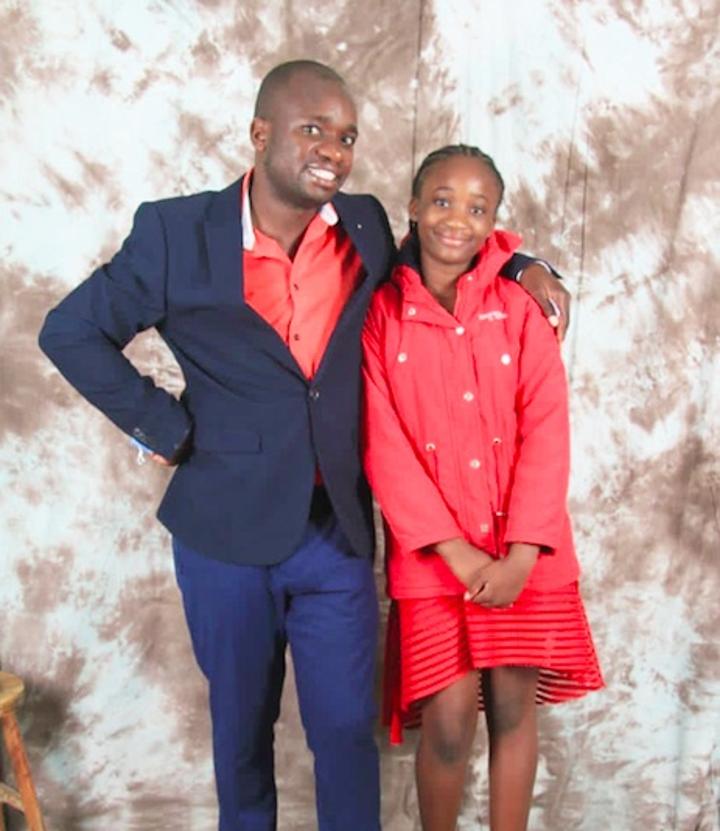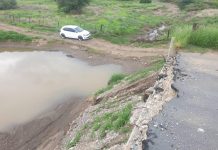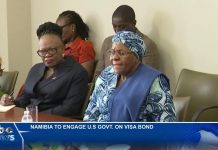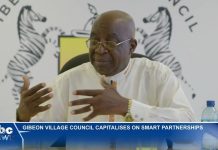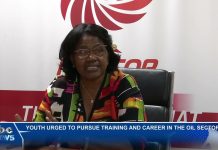Africa-Press – Namibia. • PINEHAS NAKAZIKO
HOME-SCHOOLED Tariro Moyo (13) could soon see herself becoming one of Namibia’s youngest university graduates after earning the right to register for medical subjects at tertiary level.
This follows after she broke the internet last week, having passed her Cambridge International Examination (CIE) on International General Certificate of Secondary Education (IGCSE) level with an average of approximately 90%. The CIE is an independent exam body which evaluates independant candidates on the Cambridge syllabus.
Tariro, who did her IGCSE subjects through the Walvis Bay International School, says she is happy to have passed her five subjects with good marks, and has started with her advanced-level subjects already.
At the same time she is in the process of registering for some online first-year and second-year medical subjects at the University of Oxford in the United Kingdom.
“I am very happy to have passed all five my subjects with good marks,” she says, adding that the sky is now the limit for her.
She says she will continue pushing until she graduates as a doctor. Tariro was born at Tsumeb to proud parents Brian Moyo and Auguste Ileka. She attended primary school in Zimbabwe and returned to Namibia in 2020.
Brian says he encouraged her to do IGCSE subjects in Grade 7. “She didn’t attend any high school after Grade 7, she was just here at home where I tutored her in all her subjects, and then I registered her for October examinations,” he says.
Brian says private candidates have to pay CIE examination centres a certain fee per subject. He says the Cambridge system accepts candidates of any age.
“We then continued with the syllabus and did more and more questions for revision, until I felt she was ready to sit for the exams.
“By the time she wrote the IGCSE subjects, she was supposed to be in Grade 7. I tutored her on the whole high school syllabus in five months,” Brian says. He says he wouldn’t have dreamt of Tariro skipping high school in the mainstream system.
“It was just a matter of realising that going to high school for her would be a waste of time . . . I just decided to do it all at once, but it took patience and dedication,” he says.
Brian says Tariro has started with chemistry, mathematics and physical science on an advanced level, while he assists her with her medical modules. “This is so that it becomes revision when we get to the school of medicine,” he says.
Moyo advises parents to be involved in their children’s lives – especially in their education. “Even if we may not be gifted to tutor them, let’s engage our support emotionally and financially, and let us create programmes for our kids to make it in life.”
Elizabeth Berghein, an examiner at the Walvis Bay International School, says the school is not allowed to provide information on private candidates’ results unless parents provide permission to do so.
The director of the National Institute for Educational Development, Patrick Simalumba, says Cambridge’s IGCSE level is benchmarked with the Namibia Senior Certificate Ordinary (NSSCO) qualification, which are both completed in two years.
He says the IGCSE syllabus and assessment requirements for all subjects are equivalent to the NSSCO qualification. IGCSE is designed for pupils aged 14 to 16 years internationally.
“This is why the NSSCO since 2020 is completed in Grade 11 in the reformed curriculum. Previously, it was completed in Grade 12,” Simalumba says, adding there is nothing wrong with a gifted child receiving additional learning support.
“The child may progress to an A-level qualification if she meets the requirements. It is, however, expected that a child should develop holistically.” He says the Namibian education system is supposed to also cater for gifted pupils.
“IGCSE prepares pupils for further studies at universities around the world. But some degree programmes require at least three to four subjects on AS or A level.”
For More News And Analysis About Namibia Follow Africa-Press

